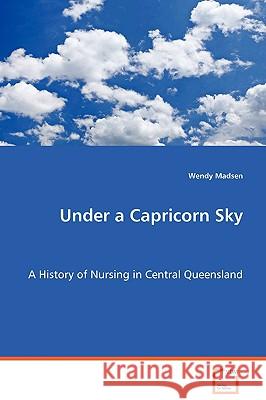Under a Capricorn Sky » książka
Under a Capricorn Sky
ISBN-13: 9783639072426 / Angielski / Miękka / 2008 / 144 str.
Nurses form the single largest health group across the globe and have done so for the past 150 years. Yet, they are frequently left out of the historical record. Histories of nursing have often focused on an institution or organisation. Few look at nursing work across a single geographical region; even fewer consider a non-metropolitan context. This book traces the various modes of nursing work available during the first half of the 20th century in a specific region of Australia: Central Queensland. It analyses nurses and their work within the broader social and political contexts of whiteness and welfare, and considers how these influenced the evolution of nursing services: who the nurses were, where they worked, and what factors affected their work. This analysis should be of interest to nurses seeking to understand their past a little better; and to social historians seeking to uncover the place of women working in health industries.
Nurses form the single largest health group across the globe and have done so for the past 150 years. Yet, they are frequently left out of the historical record. Histories of nursing have often focused on an institution or organisation. Few look at nursing work across a single geographical region; even fewer consider a non-metropolitan context. This book traces the various modes of nursing work available during the first half of the 20th century in a specific region of Australia: Central Queensland. It analyses nurses and their work within the broader social and political contexts of whiteness and welfare, and considers how these influenced the evolution of nursing services: who the nurses were, where they worked, and what factors affected their work. This analysis should be of interest to nurses seeking to understand their past a little better; and to social historians seeking to uncover the place of women working in health industries.











